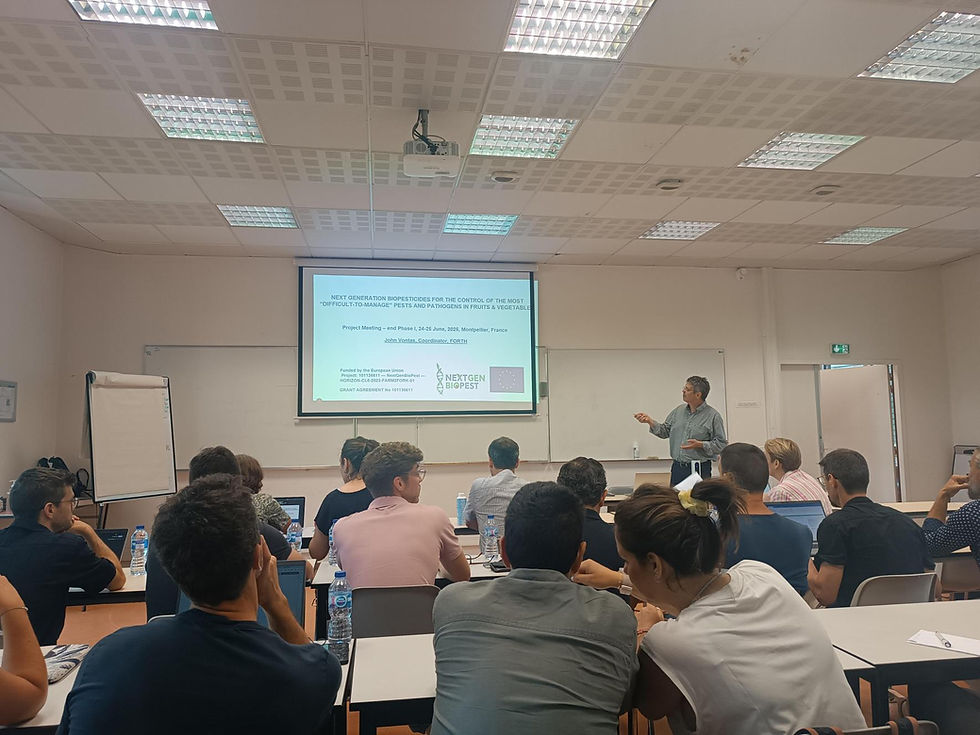NextGenBioPest at Cooperative Cobella!
- Angeliki Milioti
- Sep 28, 2025
- 1 min read
On 25 September 2025, Apostolos Pekas represented the NextGenBioPest project at Cooperative Cobella in Huelva, Spain, presenting research on the biological control of invasive thrips.
The presentation highlighted the significance of predatory thrips Franklinothrips vespiformis and F. megalops in managing the invasive Scirtothrips aurantii, a major pest affecting berries and citrus crops. Apostolos Pekas discussed the potential of these natural predators as part of integrated pest management strategies, demonstrating how they can reduce reliance on chemical insecticides while supporting sustainable fruit production.
The event provided a platform for knowledge exchange between researchers, growers, and industry stakeholders, reinforcing the role of NextGenBioPest in promoting innovative, environmentally friendly solutions for crop protection.


